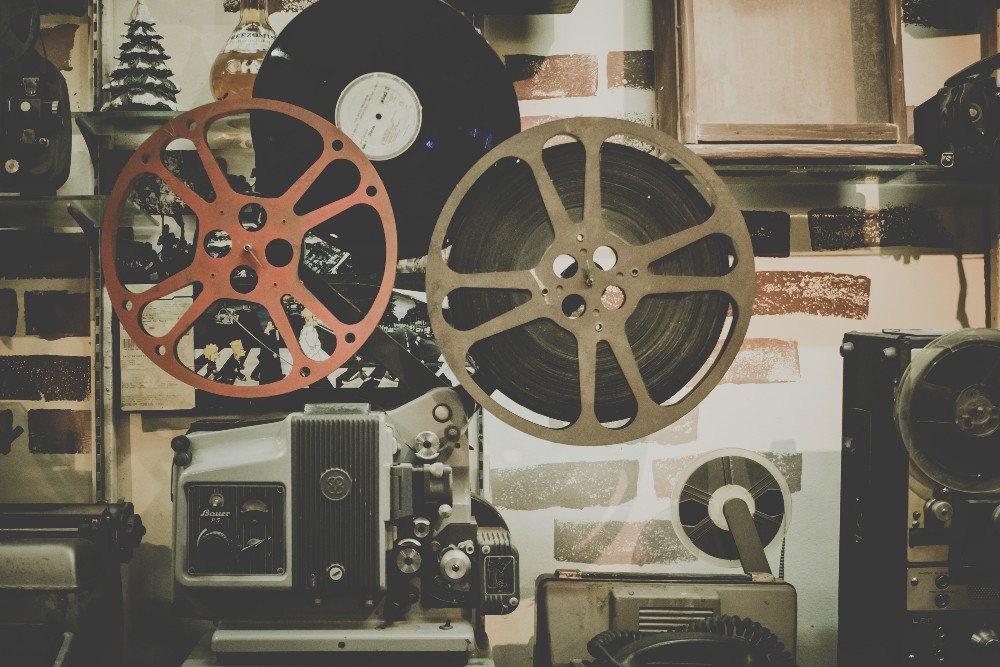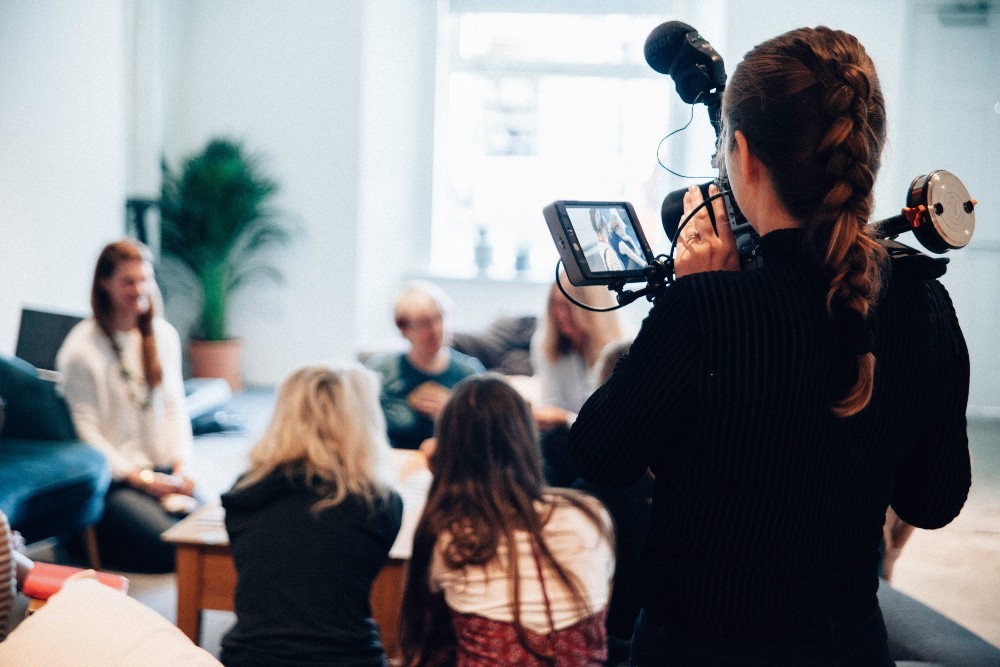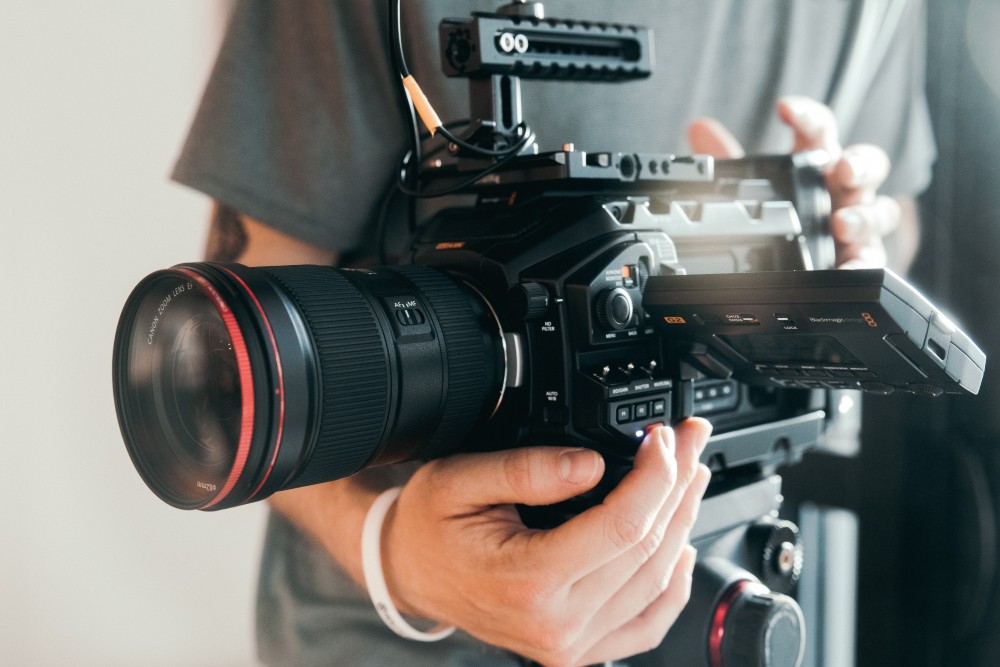Taking a Film Class in High School: The First Step Toward Film School
Ginger Abbot
Feb 27, 2023
We are a reader-supported education publication. When you buy through links on our site, we may earn an affiliate commission to help us keep providing content.
The United States boasts a robust film industry, from motion pictures to streaming services. That’s in addition to television and the many essential roles of film production.
Even amid lockdowns during the COVID-19 pandemic, the U.S. movie industry employed 257,000 workers with an expected 25% revenue growth by 2024 — equating to $32.5 billion. People enjoy being entertained, and what better way than to escape within the cinema.
As a high school student hoping to bring stories to life on camera, you may consider going to college for cinematography, screenwriting, production, directing, or something closely related to the industry.
However, the best way to prepare for film school is by taking a film class in high school. High school film classes immerse students in renowned works of classic filmmakers, encouraging them to analyze and view films as a visual art form.
4 Things You Learn from Film Class in High School
Taking a film class in high school is perfect for students who enjoy watching and discussing movies. In addition to viewing masterpieces you may not have seen before, you’ll have the chance to learn several other important things about film.

1. Learn the History of Film
Film classes typically dive into the history of cinematography — right back to 1895 when the Lumière brothers debuted the first short film, “Workers Leaving the Lumière Factory.” The brothers are often regarded as pioneers in film technology and even developed the cinematic vernacular used today.
Another popular viewing in film classes is by George Méliès titled, “A Trip to the Moon,” which debuted in 1902. Méliès, a former stage magician, is famous for creating the “stop trick” technique, which occurred when his camera jammed, enabling him to instantly send people and objects off-camera and change the background and foreground.
For students interested in pursuing film, learning the history of cinema and the many points in history that film production evolved is critical.
2. Exposure to Various Film Styles and Genres
According to box office ticket sales, 64.95% of Americans and Canadians prefer watching adventure films, followed by action films at 50.56%.
Younger people are particularly fond of superhero and science fiction franchises and live for the special effects and breathtaking combat scenes. Yet, there are many excellent films you might miss out on if you only stick with one genre.
In film class, you gain exposure to various film compositions — for example, comedy, western, drama, romance, science fiction, suspense, and documentary. Additionally, each film may utilize different camera techniques like panning, bird’s eye, or long shot.
As a future filmmaker, it’s in your best interest to learn about the different genres and film techniques for when you begin creating your own pieces.
3. Encourages Creativity and Emotion
Enrolling in film class in high school fosters creativity and imagination. Fictional storylines and even actual events are portrayed on screen, allowing you to imagine yourself in the plot. For some, the viewing experience becomes an emotional one.
Creativity plays an integral role in film careers. Whether you’re behind storyboard development, playing a character, or directing, your ability to envision scenes play out in your mind and make them come through on camera is essential.
4. Teaches You About Different Careers
High school film classes are a perfect introduction to various film industry careers. While you may currently wish to be a director of a box office hit or walk the red carpet, you’ll have a chance to learn about every role that makes film production possible, such as the following:
- Videographers
- Sound mixers
- Costume and prop designers
- Directors
- Producers
- Screenwriters
- Film editors
- Composers
- Set designers
- Casting directors
- Production coordinators
There are hundreds of career opportunities you may not have considered before. However, high school is the perfect place to start gaining insight into different avenues you can pursue in college.
What You Can Do to Prepare for Film School
Colleges awarded 8,429 film degrees in 2020, which is increasing by approximately 5.03%.
If you’re a high school junior or senior interested in pursuing a film degree in college, you’re encouraged to prepare for film school in the following ways.

1. Create Your Own Movies
Enrolling in film school with a few skills under your belt is a good idea. The only way you’ll attain the creative and technical chops for movie-making magic is to start producing films early on — outside of film class.
Without a rubric or teacher to help guide you, you’ll have to rely on your imagination and problem-solving capabilities without assistance from an experienced teacher. You’ll also gain a better idea of the types of films you may want to make in the future.
2. Learn As Much As You Can
Taking a film class in high school will provide you with essential foundational learning in film studies — but don’t stop there. Whether you want to be a videographer or screenwriter, take advantage of learning opportunities wherever you find them.
Seek industry mentors and reach out to professionals who can talk you through diverse educational and professional paths. If your school doesn’t offer film or similar courses, improve your film skills by attending community art classes, college courses for high schoolers, summer programs, workshops or volunteer work at local theaters.
3. Experiment
Let’s say you know for sure that you want to be a cinematographer. Experimenting with different shots or panning of objects and people is essential. Likewise, actors must practice impressions and reciting monologues.
However, if you plan to go to film school and eventually find a career, you need to know far more than your individual role.
For example, creative writing is a great course to experiment with story development, the narrative arc, genre elements, and editing. Meanwhile, art classes may furnish the artistic skills needed to create backgrounds, costumes, and props.
Communication skills amongst casts, crews, and movie executives are also universally critical. As such, speech classes would prove helpful in speaking clearly and gaining confidence.
When you explore the various techniques and areas of film, you can learn what other people do in their roles. A more holistic approach to filmmaking will prove invaluable.

4. Enter Competitions
Submitting your work to competitions and festivals is an excellent way to get your name and art into the public sphere. Impending deadlines and knowing your film will be seen and judged by an audience will better prepare you for the pressures of film school and entering the field.
When you plan to submit your work to competitions, pay attention to how you develop your projects, your strengths and weaknesses, and the areas that need improvement.
Enrolling in film school with this level of experience and awareness will keep you one step ahead of everyone else.
Film Class in High School Is the Best Starting Point
If you aspire to attend film school and become a global box office success someday, you can pave your way to greatness by enrolling in a film class while in high school. The earlier you discover everything about cinema, the more prepared you’ll be.
latest in learning!
Get the latest updates in learning, teaching and everything in between! Whether you're a student or an educator, we offer the inspiration you need to fuel your classroom experience.









